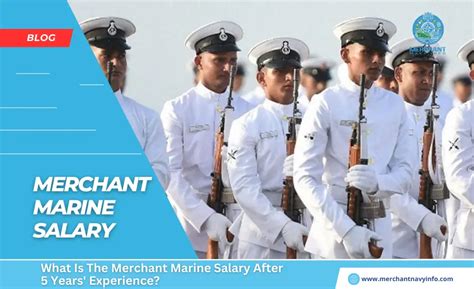The maritime industry plays a vital role in global commerce, facilitating the transportation of goods and materials across oceans. As the backbone of this industry, merchant marines are highly skilled professionals responsible for the safe and efficient operation of merchant vessels. The maritime workforce is a diverse and dynamic one, encompassing various roles and specializations, each with its own unique set of responsibilities and earning potential.

Merchant Marine Salaries: A Comprehensive Overview
Merchant marine salaries can vary significantly depending on factors such as rank, experience, vessel type, and geographic location. According to data published by the International Maritime Organization (IMO), the average annual salary for merchant marine officers worldwide ranges from $40,000 to $200,000. However, these figures represent a broad range, and actual salaries can be higher or lower depending on individual circumstances.
The U.S. Bureau of Labor Statistics (BLS) provides specific salary information for merchant marine officers in the United States. According to the BLS, the median annual wage for merchant marine officers was $92,880 in May 2020. The top 10% of earners in this occupation made over $159,000 annually, while the lowest 10% earned less than $48,470.
Factors Influencing Merchant Marine Salaries
Several factors can influence merchant marine salaries, including:
- Rank: The rank of the officer is a major determinant of salary. Master mariners, who hold the highest rank on a vessel, typically earn the highest salaries.
- Experience: Experience plays a crucial role in determining salary potential. Officers with more years of experience are generally more highly compensated.
- Vessel type: The type of vessel an officer serves on can also impact salary. Specialized vessels, such as tankers or container ships, often pay higher salaries than general cargo ships.
- Geographic location: The geographic location where an officer works can affect salary. Officers working in certain regions, such as offshore oil and gas platforms, may earn higher salaries due to the higher cost of living and the hazardous nature of the work.
Career Advancement and Salary Progression
Merchant marine careers typically involve a hierarchical structure with various ranks and levels of responsibility. Officers start their careers as deck officers or engineer officers and progress through the ranks as they gain experience and demonstrate proficiency.
Salary progression is generally tied to rank and experience. Officers move up the ranks as they gain seniority and take on additional responsibilities. This progression is accompanied by corresponding salary increases.
Specializations and Niche Opportunities
Within the merchant marine industry, there are various specializations and niche opportunities that can lead to higher salaries. These include:
- Marine engineers: Marine engineers are responsible for the operation and maintenance of marine engines and other mechanical systems on vessels. They earn higher salaries than deck officers on average.
- Specialized certifications: Officers who acquire specialized certifications, such as those for tanker operations or offshore operations, can command higher salaries.
- Port authority personnel: Port authority personnel who work as pilots and harbormasters typically earn higher salaries than merchant mariners working on ships.
Tips and Tricks for Maximizing Salary Potential
- Gain experience: Build up as much experience as possible on various vessel types and in different geographical locations.
- Advance your rank: Progress through the ranks quickly by demonstrating your competence and taking on additional responsibilities.
- Acquire specialized certifications: Invest in specialized certifications to enhance your skills and expand your earning potential.
- Network: Build a strong professional network and establish relationships with maritime employers.
- Be prepared to relocate: Be willing to relocate to different regions for higher-paying opportunities.
Common Mistakes to Avoid
- Limiting your experience: Stay active in the industry and seek opportunities to gain experience on different vessels.
- Neglecting professional development: Invest in your professional development by attending training courses and acquiring certifications.
- Underestimating the importance of networking: Build strong relationships with maritime employers and other professionals in the industry.
- Being afraid to relocate: Be open to relocating to different regions for higher-paying opportunities.
- Ignoring specialized opportunities: Explore specialized opportunities within the industry, such as marine engineering or port authority work.
Conclusion
Merchant marine salaries offer a wide range of opportunities for those seeking a rewarding career on the high seas. By understanding the factors that influence salary potential and taking steps to advance your career, you can maximize your earning potential and secure a lucrative position in the maritime industry.
